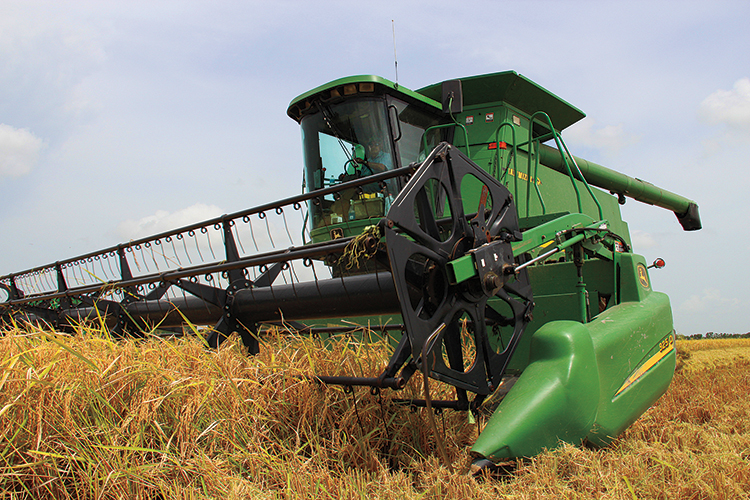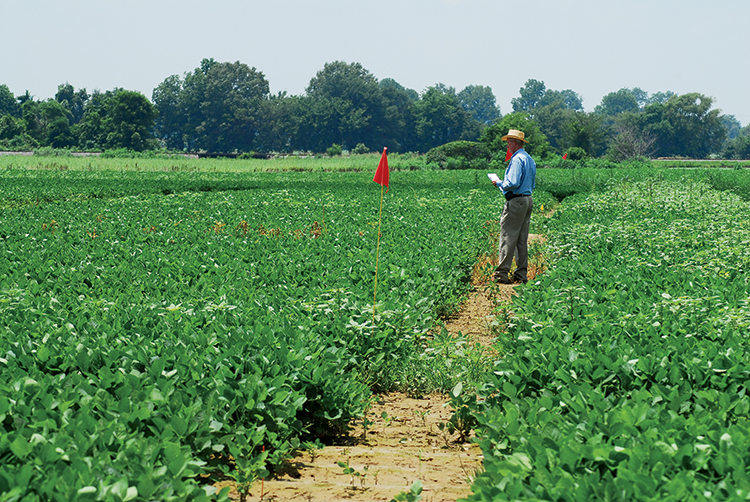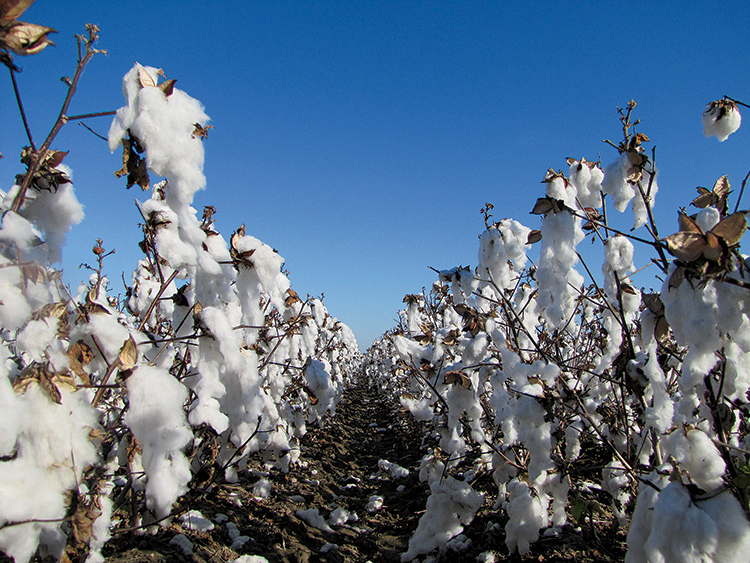Home > Arkansas > Arkansas Crops & Livestock > Advertising Arkansas Agriculture
Advertising Arkansas Agriculture
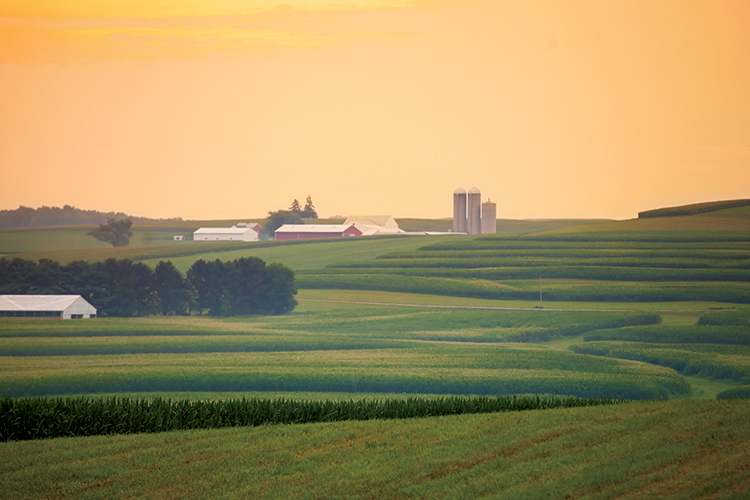
Most of us are familiar with famous slogans like, “Got Milk?” and “Pork. The Other White Meat.”
Splashing these memorable phrases across billboards and at bus stops generates millions of dollars in revenue for farmers and retailers alike, but who makes these ad campaigns possible?
Commodity checkoff programs are joint efforts between producers and other stakeholders that use their collective funds to promote awareness, education and, most importantly, research. These groups are responsible for developing promotional campaigns like the ones we see every day.
Checkoff programs were established under federal law to serve as ambassadors for the producers of a specific commodity to governing bodies, national organizations and the public.
The term checkoff comes from the act of checking the box on a financial document authorizing allocation of funds for a specific purpose.
Funds are collected from producers and pooled together to support projects like crop improvement research, nutrition education programs and catchy advertising strategies.
Arkansas boasts a slew of checkoff programs that protect and benefit the members of their respective industries.
Rice
The Arkansas rice industry has a long history of support for research and promotion programs. With the founding of the Rice Council in the late 1950’s, Arkansas’ rice producers voluntarily contributed a portion of the profits from each crop to promote rice domestically and abroad.
In the late 1970’s, farmers began voluntarily contributing to a fund specifically for research. In 1985, the programs were combined into one state agency: the Arkansas Rice Research and Promotion Board. The Board is made up of 9 farmers appointed by the governor, and allocates funds collected from an assessment of 1.35 cents per bushel of rice grown in Arkansas paid by the grower and reserved for research, and an equal assessment paid by the first buyer which is reserved for promotion and market development. The Board considers proposals for research and promotion projects on an annual basis. The Board has had a long and successful relationship with the USA Rice Council, which conducts domestic and international promotion and market development programs.
Since the mid-1980s, domestic per capita consumption of rice has nearly doubled and the export value of the U.S. rice crop has increased by over 200%. Thanks to a successful partnership with the University of Arkansas Division of Agriculture, Arkansas producers have doubled their per-acre yields in the past 50 years. For more information: arkrice.org.
Soybeans
For nearly 40 years, soybean growers in Arkansas have supported and reaped the benefits from the work of both the national and state soybean boards, named the United Soybean Board and the Arkansas Soybean Promotion Board, respectively.
In 1994, the National Soybean Checkoff Referendum dictated that the financial contribution from soybean producers across the nation would be half of 1 percent of the net market price.
This amount usually ranges from $7 million to $10 million annually, with half being administered by each board.
The Arkansas Soybean Promotion Board is governor-appointed and consists of nine soybean farmers who have been approved to represent their peers, as well as the major agricultural organizations in Arkansas, including the Agriculture Council of Arkansas, Arkansas Farm Bureau, Arkansas Soybean Association and Riceland Foods.
These representatives seek “to improve the sustainability and profitability of the soybean industry in Arkansas.”
This is accomplished by allocating money toward producer-driven endeavors to increase yields, reduce production costs and improve the soybean industry as a whole.
For more information visit themiraclebean.com.
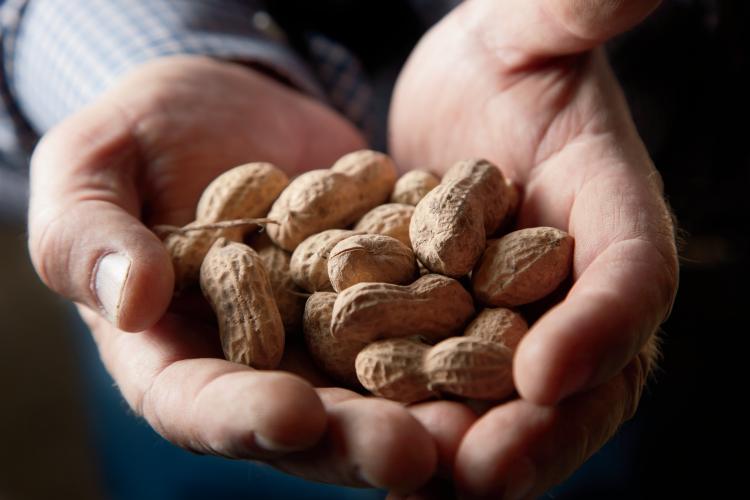
Peanuts
One of the newest members of the National Peanut Board, the state of Arkansas is recognized as a “primary peanut producer,” averaging at least 10,000 pounds annually over a three-year period. In fact, the state averaged 15,348 tons from 2010 to 2012.
The National Peanut Board was organized to combat a significant decrease in the interest in peanuts. This was the result of increased competition in snack food options.
American peanut farmers banded together to create an organization to increase demand for peanuts through marketing and promotions, and to explore new markets and production methods.
Arkansas is now the 11th state with full voting rights and a local producer on the board. Member Greg Gill, and alternate member Greg Baltz, represent the state.
The peanut board is a farmer-funded national research, promotion and education checkoff program, which allocates a budget of $8.69 million for promotional and research efforts, based on peanut price and acreage. Arkansas’s cut of almost $100,000 will help significantly with state-specific research.
All minor peanut-producing states are represented on the National Peanut Board by a single at-large board member.
National board promotional efforts have changed how the public thinks about peanuts and their use. By working with celebrity chefs and national food chains to incorporate peanuts into different dishes, the board has expanded its market and shown that peanuts are a versatile, low-calorie, nutrient-dense choice for a snack or ingredient in a dish. For more information visit nationalpeanutboard.org.
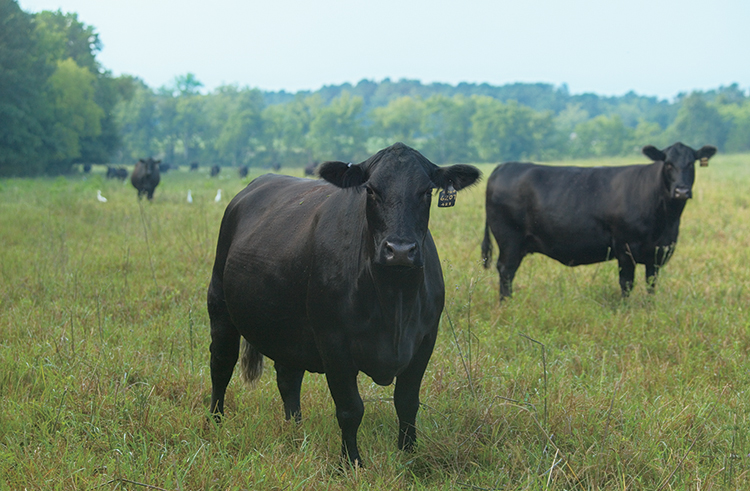
Beef
The state’s beef industry depends on the Arkansas Beef Council, a seven-member board of producers, to administer the state’s portion of the national beef checkoff program through the Cattlemen’s Beef Promotion and Research Board, also known as the Cattlemen’s Beef Board.
The checkoff program was established in 1985 with the Farm Bill and producer funding was voted on in 1988.
Producers contribute $1 per head sold of live domestic and imported cattle to the checkoff to increase the quality of the products and the demand for beef. The Arkansas Beef Council retains up to 50 cents per dollar from producers in the state to support state programs.
These programs include promotions, advertising, nutritional education, research, public relations and market development activities.
The Cattlemen’s Beef Board is made up of 106 members who represent all aspects of the beef industry, such as beef, veal and importers. These members are nominated by organizations and importers within the industry and appointed by the U.S. Secretary of Agriculture.
For more information visit arkansasbeef.org.
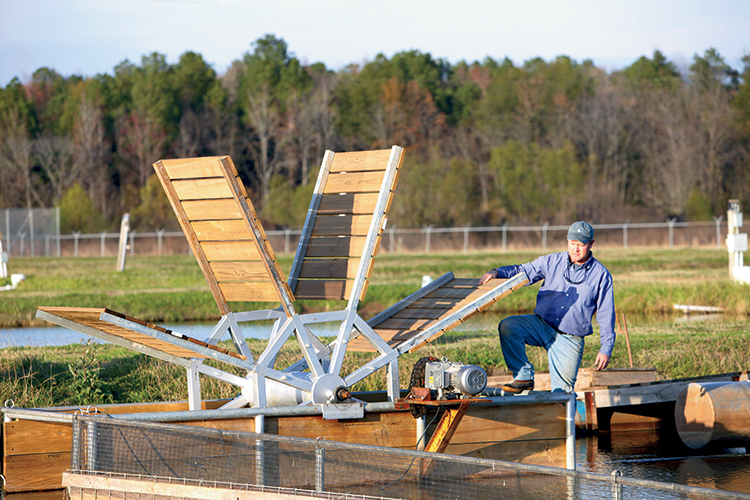
Catfish
Technological breakthroughs are revolutionizing the U.S. catfish industry. These breakthroughs include the split-pond system funded by the Arkansas Catfish Promotion Board.
The split-pond system, also called the University of Arkansas at Pine Bluff Waterwheel, is used on more than 1,300 acres of commercial catfish production ponds in Arkansas and Mississippi. The paddlewheel-like mechanism transfers water from the side of the pond where the fish are raised to the wastewater treatment side.
This technology will save catfish producers approximately $25,000 per pond in construction costs and increase their efficiency.
The Arkansas Catfish Promotion Board was created in 1999 to promote the growth and development of the catfish industry in Arkansas through research, promotion and market development.
Funds for research and promotional efforts are collected at $1 per ton on all catfish feed purchased by commercial catfish producers in the state.
The board is made up of seven governor-appointed producers who represent the Arkansas Farm Bureau and the Catfish Farmers of Arkansas. The board is responsible for accepting or rejecting projects. The executive vice president of the American Farm Bureau Federation, or his designee, serves as board administrator.
Catfish producers rely on the Arkansas Catfish Promotion Board for support and improvement of both the quality of their products and the future of the industry.

Wheat
Act 283 of the 1985 Arkansas General Assembly established the state’s wheat checkoff program, which is administered by the Arkansas Wheat Promotion Board. When first established, the contribution of .5 cents per bushel was approved by producers, and increased to 1 cent per bushel in 1995.
This money is assessed from all wheat grown in Arkansas for market, and collected at the first point of sale. These resources fund research through the University of Arkansas Agricultural Experiment Station and Cooperative Extension Service, and domestic and export promotion programs through national wheat organizations.
These programs and efforts seek to improve yields and products, as well as increase demand.
Industry organizations nominate, and the governor appoints, nine wheat producers to serve two-year terms on the Arkansas Wheat Promotion Board. Members donate their time and energy free of charge to serve as leaders in the Arkansas wheat industry.
The state’s promotion board is a member of U.S. Wheat Associates, the Wheat Foods Council and the Export Trade Education Committee. These associations focus on national and domestic markets.
Some of the research projects funded by the checkoff program include breeding for improved wheat varieties, rust initiative, and disease and weed management.
The board strengthens the Arkansas wheat industry through research and promotional efforts.
For more information visit arkansaswheat.org.
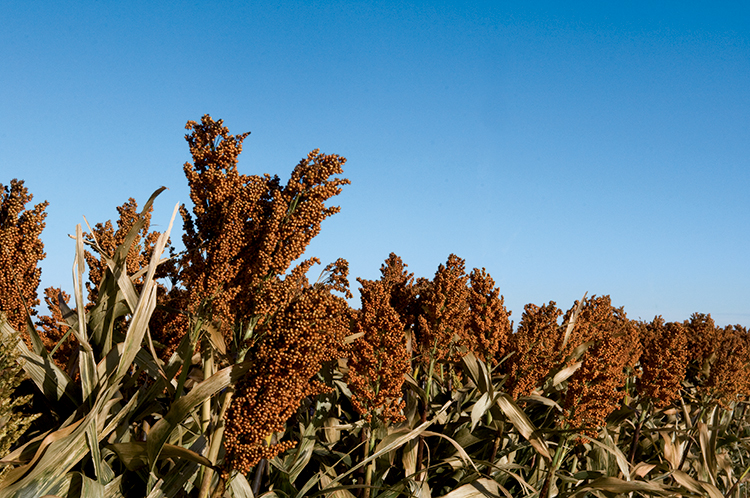
Corn and Grain Sorghum
The Arkansas Corn and Grain Sorghum Board represents producers of both commodities, and was established by Act 271 of the 1997 Arkansas General Assembly.
The seven board members are nominated by industry organizations and appointed by the governor.
Like other checkoff program boards, these members serve two-year terms without pay.
Checkoff funds of 1 cent per bushel of all corn and grain sorghum are collected at the first point of sale. The funds are directed toward research at the University of Arkansas Agricultural Experiment Station and Cooperative Extension Service.
The USDA Agricultural Marketing Service also collects the national sorghum checkoff. Six percent of the value of the crop is sent to the national checkoff program, and 15 percent to 20 percent is returned to the state.
The Arkansas Corn and Grain Sorghum Board also represents state producers to numerous other national commodity organizations and groups, such as the U.S. Grains Council, National Corn Growers Association, United Sorghum Checkoff and Aflatoxin Mitigation Center of Excellence.
Much of the state checkoff money is funneled towards research and promotion, but some is also used to educate the public through programs such as Ag in the Classroom. A grant through the board has also made the Ag in the Classroom Corn and Poultry Ag Readers features available in state agriculture classes for free. It also provides a number of other agricultural education materials to classrooms throughout Arkansas.
Cotton
Arkansas’s cotton industry depends heavily on the Arkansas State Cotton Support Committee to represent the state to the national cotton checkoff program called Cotton Incorporated.
Cotton Inc. was founded in 1970, thanks to the Cotton Research and Promotion Act of 1966, which established a funding mechanism for the rejuvenation of cotton’s competitiveness and market share.
The Arkansas State Cotton Support Committee strives to promote the growth and development of the cotton industry in the state by research, extension, promotion and market development.
The committee plans and conducts research and marketing projects that promote the state’s cotton industry, using funds derived from fees paid by state producers.
One of the most visible strategies of Cotton Inc. has been the “The Fabric of Our Lives®” campaign which uses celebrity endorsements and a unique marketing approach to make people really think about the clothes they wear every day.
Each state involved in Cotton Inc. receives 7 percent of state funds. Some of the ongoing research projects are rain-fast requirements for insecticides, irrigation efficiency, the management of new cultivars, herbicide insecticide interactions and more.
The rain-fast study for insecticides uses the weather forecast to determine the necessity of adding a surfactant, which has been proven to increase efficiency when rain closely follows an insecticide application, or if using a different insecticide altogether will work better.
The soil health and irrigation efficiency study, funded in part by the checkoff program, strives to preserve groundwater while maintaining profitable yields.
The Arkansas State Cotton Support Committee aims to protect the state’s natural resources while continuing to produce quality cotton.
For more information visit cottoninc.com.




